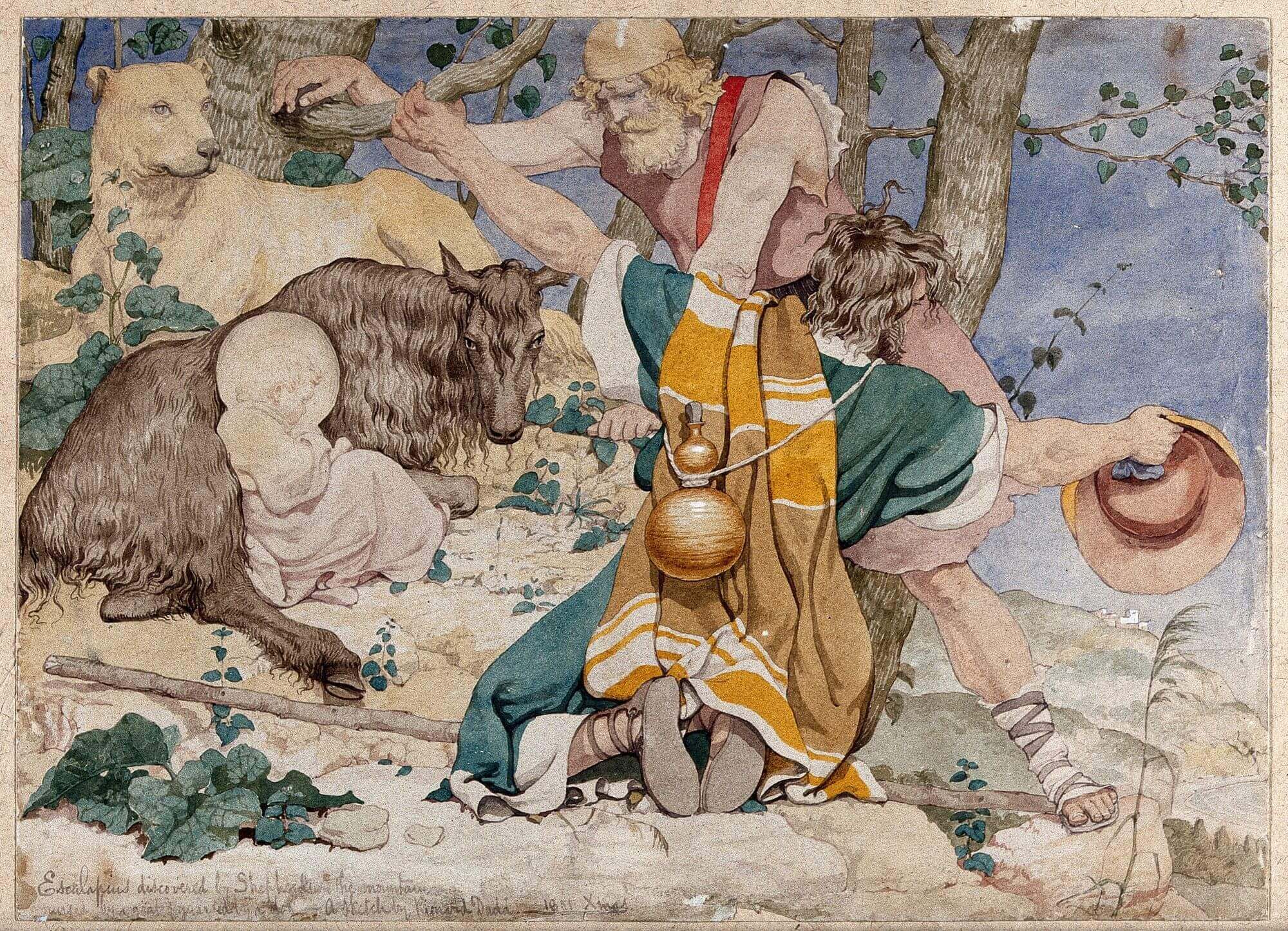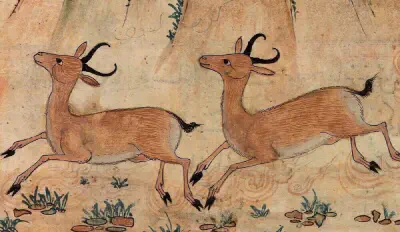Life
According to Herodotus’s Histories, as far back as the sixth century BCE, the city of Croton in the south of Italy was famous as a centre for medicine. And so perhaps it is no surprise this was the home of one of the ancient world’s most famous philosophers of medicine, Alcmaeon.
We don’t know much about Alcmaeon’s life. He was probably born some time in the late sixth century BCE, which would make him a contemporary of the philosopher Parmenides. We know that Alcmaeon’s father was called Peirithous and that Alcmaeon wrote a book called On Nature. Later writers tend to count Alcmaeon less as a physician himself, and more as a philosopher, although the boundaries between the two are never clearly drawn.
Hanging out with the Pythagoreans
Some later writers have suggested that Alcmaeon was a pupil of Pythagoras or a member of the Pythagorean philosophical school. This is not entirely unlikely: Croton was the centre of the Pythagorean community, and so Alcmaeon would have come into contact with Pythagoreans. But the evidence that he was a follower of Pythagoras is dubious. Aristotle hedges his bets, never explicitly identifying Alcmaeon as a Pythagorean, although he wrote in the Metaphysics that, “For Alcmaeon was a young man in Pythagoras’ old age, and his system was pretty much like theirs” [1].
Either way, Aristotle was not a big fan of Alcmaeon. One of his lost works is an attack on Alcmaeon’s system: a sign that Alcmaeon was a philosopher whom his successors took seriously, even if they did not agree with him.
Philosophy
On Nature
Several early Greek philosophers, including Anaximander, are said to have written books with the title On Nature. Alcmaeon’s own On Nature does not survive, but like many ancient texts, it is possible to piece together some of its contents from the quotations of later writers, and what emerges is a systematic view of health and sickness.
Sickness and the gods
In the works of Homer, sudden sickness was often attributed to the gods Apollo and Artemis, with Artemis—according to the translator Emily Wilson—being associated in particular with the deaths of women.[2] There is a good example of this in the Iliad. When the Greek army outside the city of Troy is struck down by sickness, Homer attributes the cause to Apollo’s anger at Agamemnon. Supernatural sicknesses require supernatural cures. So the Greeks consult the diviner Calchas, who tells them how to mollify the enraged Apollo; and when they do, the plague subsides.

The birth of naturalistic medicine
Alcmaeon broke with this theological understanding of illness. His most significant innovation was that he produced a systematic theory of sickness and health that had no need for the gods. A later account of his theory, recorded by the philosopher Aetius (1st — 2nd century CE) explains it like this:
Alcmaeon holds that what preserves health is the equality [isonomia] of the powers — moist and dry, cold and hot, bitter and sweet and the rest — and the supremacy [monarchia] of any one of them causes disease; for the supremacy of either is destructive. The cause of disease is an excess of heat or cold; the occasion of it surfeit or deficiency of nourishment; the location of it blood, marrow or the brain. Disease may come about from external causes, from the quality of water, local environment or toil ocr torture. Health, on the other hand, is a harmonious blending of the qualities. [3]
The ideas of equality and supremacy are borrowed from the sphere of politics, suggesting that the healthy body is a body that is ordered in the same way as a healthy state, its component powers working in harmony with each other, without any one power becoming paramount and leading to imbalance and disequilibrium.
Knowledge and inference
Another important idea attributed to Alcmaeon is the idea that human knowledge proceeds by inference. For some Greek philosophers such as Parmenides), there is something divine about human knowledge. But for Alcmaeon, understanding is something that we gain incrementally through abstracting from our experience. At the very beginning of his book On Nature, Alcmaeon wrote:
Concerning things unseen the gods possess clear understanding, but in so far as men can proceed by inference, I say as follows… [4]
The process of coming to understand the world, and the principles that underpin it, do not involve revelation. For Alcmaeon, we get to know the world by means of investigation. So perhaps it is no surprise that there is some evidence that Alcmaeon may have conducted anatomical dissections in his search for a deeper understanding of how the human sense organs work.
Scholars still argue over whether Alcmaeon was really one of the earliest practitioners of human dissection. But either way, he was one of the first thinkers to argue that the centre of our sensation, our cognition and our intellect was the brain rather than the heart. And for this, Alcmaeon has sometimes been called the father of neuroscience.
Notes
[1] Aristotle: Metaphysics, trans. Hugh Lawson-Tancred (Penguin Books 1998). p. 41
[2] The Odyssey: Homer, trans. Emily Wilson (W.W. Norton 2018), p. 277.
[3] Greek Rational Medicine: Philosophy and medicine from Alcmaeon to the Alexandrians by James Longrigg (Routledge 1993), p. 42
[4] ibid.
Further Reading
Books
James Longrigg’s Greek Rational Medicine: Philosophy and medicine from Alcmaeon to the Alexandrians (Routledge 1993) is a great read if you can get hold of it.
Online Resources
Although this paper on Alcmaeon is almost 90 years old, it gives one of the most complete translations of English of his fragments. [Download PDF]
There’s a good overview of Ancient Greek medicine here.



